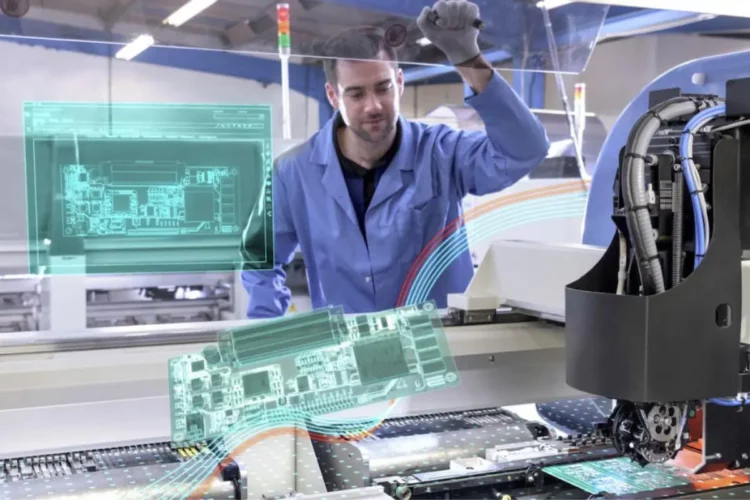When it comes to managing and overseeing the intricate production process for manufacturing companies, electronics manufacturing software plays a crucial role. Using such a software can help streamline complex production tasks by facilitating automation of repetitive tasks and ensuring efficient coordination and transparency. Electronics manufacturing software also offers real-time visibility into every aspect of the production process, from inventory levels, order status, maintenance status, and much more.
Using electronics manufacturing software helps manufacturers automate repetitive tasks like bill of materials (BOM) management and quality assurance, thus minimizing risk and reducing the possibility of overstocking, understocking, or delays in the production process. At the same time, it can enhance collaboration across teams and enhance overall efficiency, helping manufacturers meet consumer demand. Let’s have a look at some of the main areas where electronics manufacturing software plays a pivotal role.
1. Traceability and regulatory compliance
Traceability throughout the entire production process and supply chain is critical for electronics manufacturing companies. Manufacturers have to comply with rigorous standards, such as RoHS or WEEE, to ensure that the right materials are used and that products follow the guidelines set by the regulators. This in turn eliminates the risk of compliance violations, which can bring on significant penalties and damage brand reputation and trustworthiness. By using electronics manufacturing software, keeping track of each individual component and product throughout the product lifecycle becomes feasible and allows manufacturers to oversee the entire process.
Electronics manufacturing software can also track quality inspections automatically and systematically, alert the manufacturer in regards to potential quality issues or violations, and trace the root cause to a specific product or component. Last but not least, dedicated software can streamline the return or recall process and potential warranty issues to ensure customer satisfaction.
2. Communication gaps between departments and facilities
Efficient communication and collaboration between different departments and teams is essential for electronics manufacturers, as it helps streamline the production process, boost productivity, and minimize the risk for potential issues. In the past, each department or production team would use separate software or record-keeping, which often could lead to communication gaps, misunderstandings, bottlenecks, and delays in the production process, ultimately hurting a company’s bottom line. Now, cloud-based electronics manufacturing software implemented at a company-wide level facilitates integration of different departments and facilities. Information related to any part of the production process can be shared and is visible in real time to everyone, ensuring transparency and minimizing the risk of issues like overstocking or other inventory management issues.
3. Managing complex bills of materials
Electronics manufacturing software can help manufacturing companies manage their bills of materials (BOM) in a timely and efficient manner. Navigating the complex process of a BOM is essential for production planning and scheduling, inventory management, and more, and dedicated software can assist with that. It can help manufacturers ensure that resources are properly allocated, avoid over- or understocking, and oversee the entire production process to ensure everything goes smoothly and without delays.
Well-crafted and well-managed BOMs can provide an efficient, precise roadmap for production, which in turn helps manufacturing companies keep track of the production process and ensure timely delivery of products and services. Moreover, implementing software to help manage BOMs can help companies keep better track of any product changes, updates, or revisions, without disrupting the overall production process. This can eliminate the potential for human errors and assist with predictive maintenance, thus safeguarding against delays or halts in the production process.



